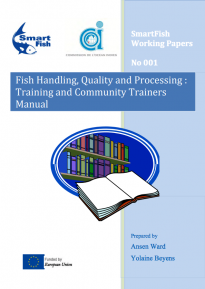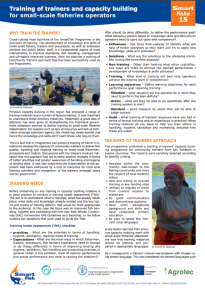Skills & Knowledge for Artisanal Fish Smoking
Skills and knowledge related to food safety, appropriate handling and good hygiene practices, and the use of improved technology will improve standards and quality, and assist in the reduction of food loss and waste (FLW) during artisanal fish smoking.
Some of the key knowledge and skills artisanal fish smokers require in order to prevent and reduce FLW include:
- Good hygiene and sanitation practices including fish handling and personal hygiene
- Good manufacturing practices
- Identification of hazards, causes of fish spoilage, and quality deterioration
- Pest Control and Waste Disposal management
- Use of appropriate fish smoking technology
- Proper food product packaging and storage
National authorities such as Health Inspectorates and Food Standard Agencies require the skills and knowledge to be able to implement extension for processors and the enforcement of food law, regulations, standards and certification.
Key Publications
Fish Handling, Quality and Processing: Training and Community Trainers Manual This document includes information related to food law implementation. | |
Training of Trainers and Capacity Building for Small-Scale Fisheries Operators Information on why training small-scale fisheries trainers is important is discussed, and approaches and paths forward are included. |
More Resources
More Resources
27 February 2024
31 October 2023
05 September 2023













